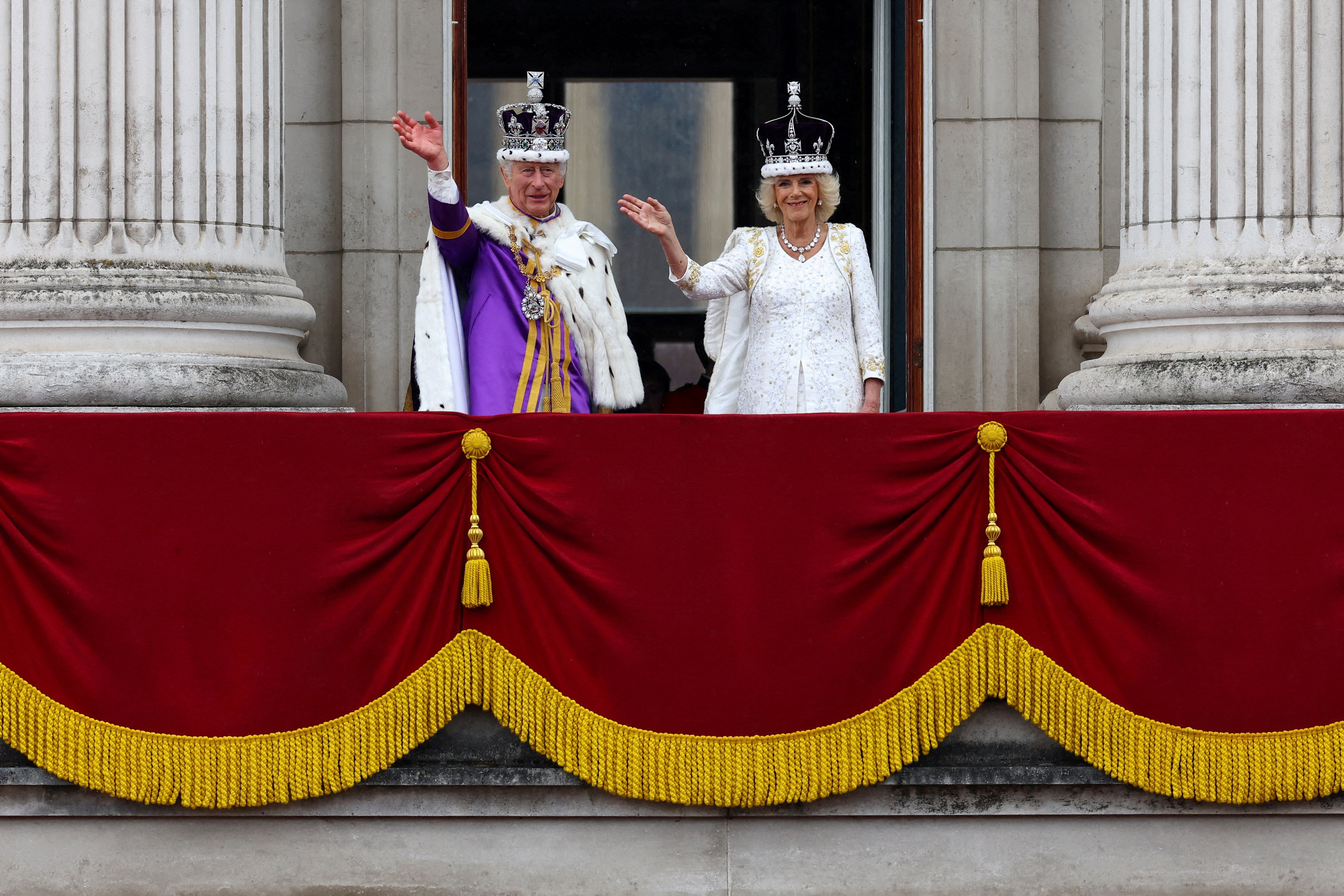Your support helps us to tell the story
From reproductive rights to climate change to Big Tech, The Independent is on the ground when the story is developing. Whether it's investigating the financials of Elon Musk's pro-Trump PAC or producing our latest documentary, 'The A Word', which shines a light on the American women fighting for reproductive rights, we know how important it is to parse out the facts from the messaging.
At such a critical moment in US history, we need reporters on the ground. Your donation allows us to keep sending journalists to speak to both sides of the story.
The Independent is trusted by Americans across the entire political spectrum. And unlike many other quality news outlets, we choose not to lock Americans out of our reporting and analysis with paywalls. We believe quality journalism should be available to everyone, paid for by those who can afford it.
Your support makes all the difference.King Charles III has reportedly turned down the temperature in the swimming pool at Buckingham Palace as he continues to find ways to reduce the royal family’s energy usage.
The newly crowned monarch, who was once described by his son, the Duke of Sussex, as a “stickler for turning the lights off”, is known for his environmentalism and implementing energy-saving policies that are climate-friendly.
A source told The Times: “A few people using the pool have noticed that the temperature of the water has dropped, and it is quite a bit cooler than it used to be. They have been told the King has had the heating turned down.”
They were further quoted as saying: “He probably thinks the whole thing is environmentally unsound, because the palace pool water has chemicals and has to be heated. It doesn’t fit with his exercise regime or his world view.”
Charles, whose coronation ceremony took place on 6 May, has also reportedly been keen for staff not to light fires in the palace unless there was a “very good reason”.
Another source said the King would “want to know why you wanted to heat a room beyond room temperature, whatever the weather outside”, adding: “He would see it as wasteful.”
Last year, during his first overseas visit to Berlin as Britain’s new monarch, the King spoke of the “vital” efforts being made by the UK and Germany to reach net-zero emissions.
He said in a speech that the move to alternative energy sources is “vital in combating the existential challenge of climate change and global warming which confronts us all”.
His Majesty has put his words into practice at some of his properties, having installed solar panels on Clarence House and using bath and waste water to care for his beloved gardens at his country residence in Highgrove.

According to the newspaper, staff have often observed the King checking that no lights are left on in the palace if no one is using the room. He is also known for keeping his windows open even in the winter.
The palace’s energy bills are funded by the taxpayer through the sovereign grant, with the bill reaching £3.2m last year. It has been reported that the King wants to achieve net zero emissions in the royal household ahead of the UK government’s goal of 2050.
Last year, Charles was hailed by the chair of Natural England as “possibly the most significant environmentalist in history”.
Following Charles’s ascension to the throne after the death of his mother, Queen Elizabeth II, Tony Juniper said: “For 50 years, he’s been involved with discussions about tropical rainforests and deforestation, sustainable agriculture and farming, water, food security, climate change, the plight of peatlands.”
Speaking to BBC Radio 4’s Today programme, Juniper continued: “He’s accumulated vast knowledge on these subjects and has been extremely driven and hard-working in making a contribution on it… I would go so far as to say that he possibly is the most significant environmental figure in history, considering the breadth and depth that he’s gone into over so long.”




Join our commenting forum
Join thought-provoking conversations, follow other Independent readers and see their replies
Comments